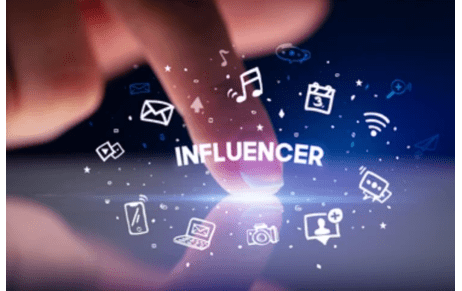A social media influencer is someone who creates content based on their niche in various…
Data Privacy in the Age of Intellectual Property
Introduction
In a world ruled by machines using lots of data, rules about keeping personal information safe and rights to own ideas create difficult problems for businesses everywhere. As companies work hard to make something new and keep their ideas safe, they have to deal with the complicated rules about keeping private information secret. This literature will delve into the issues that surround the sensitive issue of how companies maintain privacy while also trying to foster innovation.
Comprehending Data Privacy and Intellectual Property
While data privacy laws are intended to protect people’s private information, they also interact with intellectual property rights, which confer ownership and security to creative works. While the security of personal data is the main focus of data privacy, intellectual property also includes innovations like inventions, literary and creative works, and trademarks. When businesses try to use data for innovation while maintaining the values of privacy and intellectual property protection, conflict results. Companies have to act delicately at the convergence of intellectual property and data protection. Businesses want to use large data sets for insights, creativity, and the creation of innovative technologies, on the one hand.
Balancing Of Both
In this important step, companies have to carefully move so they can use big data sets for tech improvements while also following rules on privacy. These steps make sure that people’s shared details are not used badly or revealed without permission.
Innovation can cause problems for big companies as they deal with laws about keeping data private. When using data for machine learning, making AI better and creating products we must stick to rules about getting permission. We also need to limit how the information is used and only use as much as necessary. Getting important information and respecting a person’s right to keep private stuff needs special care. It also asks us to understand complex laws deeply.
Preserving the Intellectual Tapestry
At the same time, businesses need to handle their intellectual property. This means making sure they protect new ideas from data use without stepping on other people’s rights. Inventions like special planned ways and protected computer programs must be carefully connected to the current rules about IP laws. This allows for respecting who owns or is alone allowed by these rights in legal terms. In today’s world where data sparks new ideas, businesses try to get helpful information without hurting customer secrets or breaking rules about intellectual property rights. This tricky task needs a careful way, mixing strong ways to protect data with obeying privacy rules and paying respect for artists’ made-up ideas.
Keeping user data private and safe is very important. Businesses need to put in place strong code systems that keep important data safe. Strong firewalls, safe servers and secret ways to hide information help protect the big amounts of data that businesses have. By making these defenses stronger, groups not only keep user privacy safe but also protect the ideas hidden in their private data.
Anonymization and Encryption as Guardians
In the world of things you create, like books or movies, it’s very important to respect those who made them. Whether it’s about content made by users or special computer programs, recognizing and respecting ownership rights is very important. Getting it right means making rules for using data that follow privacy laws and also know the hard work of creators. Businesses should make it clear how they will use data, respecting who owns and has rights in the ideas behind their creations.
Keeping things quiet and safe become the stars in finding a balance.
Keeping private information secret makes sure people’s privacy is safe, while still letting valuable clues come out. Encryption changes data into unreadable code, protecting it from people not allowed to see. These methods not only follow common rules about privacy, but also help to protect the value of ideas inside data from being copied or used in a wrong way.
Morals help guide us in this balancing act. Businesses need to use good data practices that are more than just following the law. Moral thoughts need honesty, being responsible and a promise to use information in ways that meet the hopes of users. This way, groups not only protect their image but also help in using knowledge found in data they handle the right and fair way.
[Image Sources: Shutterstock]
 Moving Forward
Moving Forward
Working together is very important for new ideas. Often, we need to share information between different groups. But, working together can get in the way of protecting private information. Deciding where shared information stops, creating rules for safe and right ways to handle it, plus figuring out ownership problems in team projects become important things to think about. Making a balance to support innovation through teamwork and keeping data private becomes a complex task.
As the online world changes, it becomes very important to combine data privacy and ownership of ideas in a smooth way. Successful companies that handle this mix keep private rights safe and promote creativity. They also help make a future where privacy rules go smoothly with property ownership standards. This trip needs lots of changes, good moral choices and a promise to care about both private information safety and guarding smart ideas in the digital world.
The problems mentioned before show how important it is for companies to always change and adjust. Since laws about keeping personal data private change often and people expect more, we need to be ready. Businesses need strong ways to know about rule changes and update their privacy policies. They also should use good practices that show they care about keeping data private and protecting ideas as property rights.
Conclusion
Dealing with the problems needs a close bond between information privacy and ideas ownership stuff. This means creating plans that respect user privacy, follow laws and promote progress without breaking moral rules. The best companies at protecting data and ideas can quickly change with advancing rules because of being fit for digital times.
In the search for a peaceful way to protect private information and intellectual property, big companies that work on these difficulties also help in their own winnings. They also create an online world where privacy is safe at the same time as new ideas grow well together.
Author: Vaishnavi Ganeshkumar Wable, in case of any queries please contact/write back to us via email to [email protected] or at IIPRD.

 Moving Forward
Moving Forward

